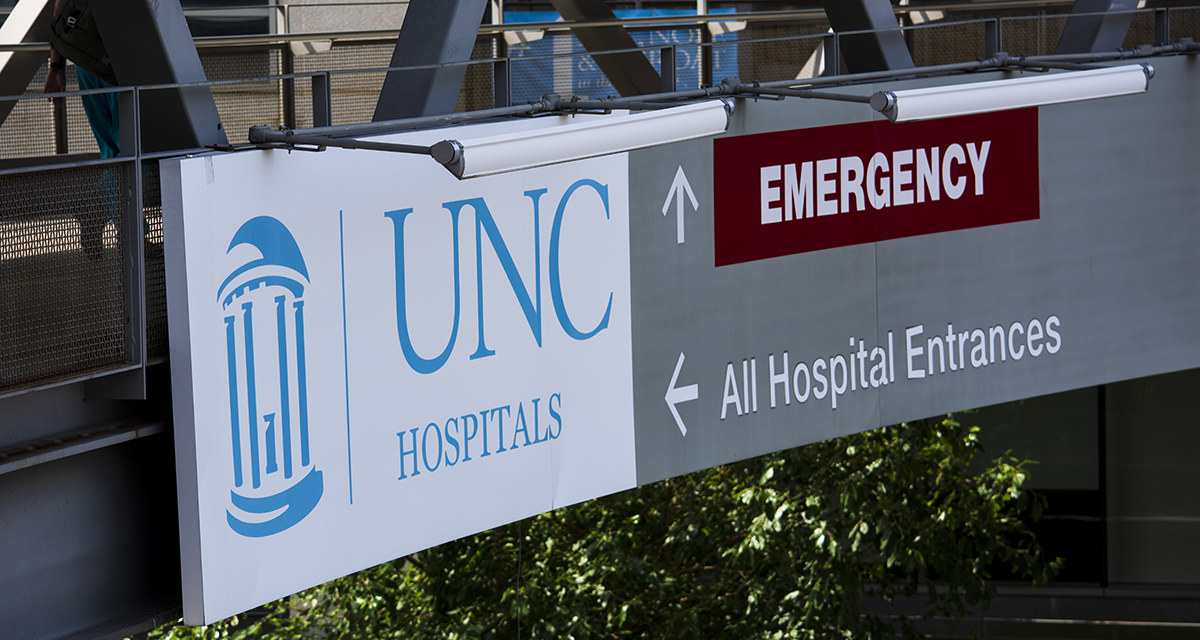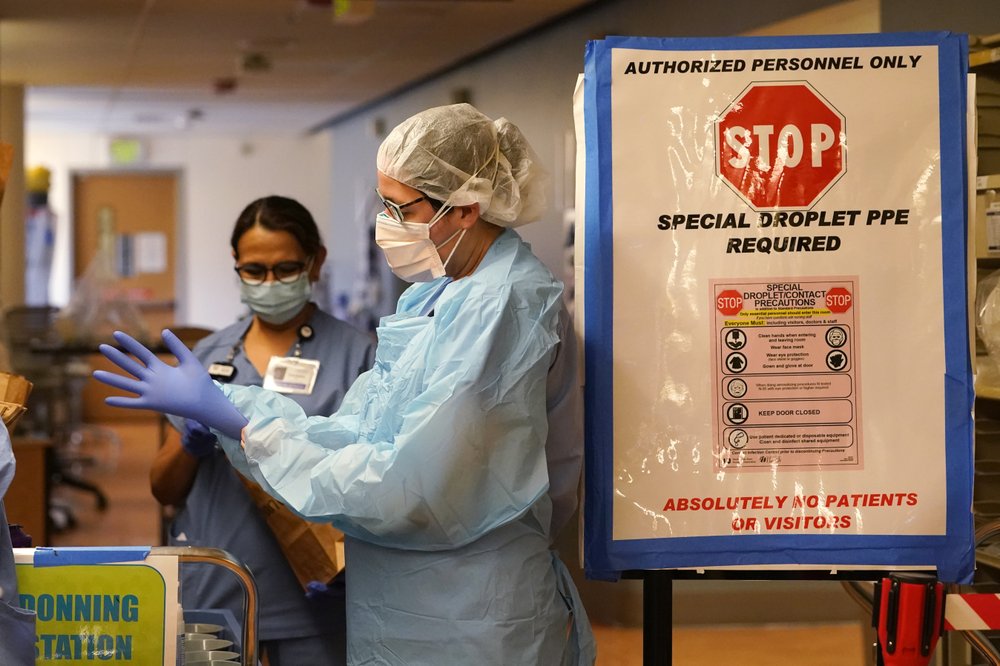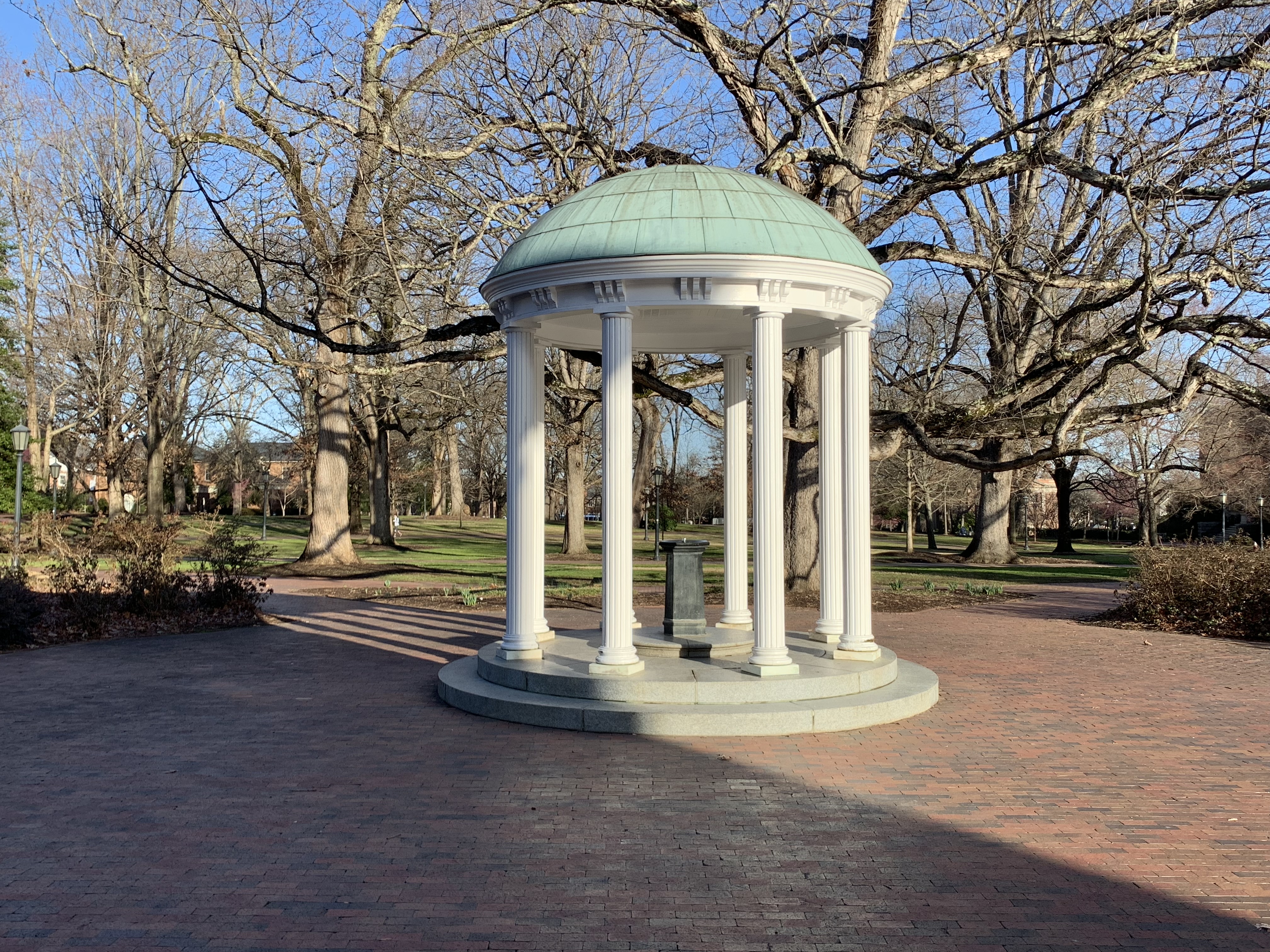According to new research from UNC and Duke, if current COVID-19 trends continue in North Carolina, hospitals could run out of beds for treating patients in six weeks.
In the past week, North Carolina’s COIVD-19 case count has broken three single-day records, including crossing more than 6,000 cases on two of those days. Just a month ago, cases were under 3,000 per day. Now, the percent of tests returning positive has increased to more than 10 percent.
On Tuesday, UNC’s Sheps Center for Health Services Research and the Margolis Center for Health Policy at Duke University published a new COVID-19 brief.
The brief predicts that should present conditions continue, North Carolina currently has a six-week runway of available acute hospital beds.
“Runway” is the amount of time until hospitals reach or exceed their inpatient or intensive care unit, or ICU, capacity. Currently, ICU beds are in shorter supply than acute beds. The report predicts that the state will hit ICU capacity in about 4.6 weeks if current trends continue.
Mark Holmes is the director of the Sheps Center for Health Services Research and is a professor at the UNC Gillings School of Global Public Health.
Holmes said he and his team were able to determine how long it would take state hospitals to reach capacity by looking at the growth rate of hospitalizations and ICU use over the past two weeks.
“We projected that [growth] rate forward until we hit what is the current capacity,” Holmes said. “Hospitals are reporting on a daily basis how many of their beds are occupied, so that gives you a sense of how much we could grow our COVID use in the short run in terms of the current capacity.”
Holmes said several regions have shorter acute and ICU bed runways than the others. Some regions like Asheville and the greater Charlotte area are facing larger hospitalization growth rates and tighter capacities.
“You know ICU beds are expensive and so hospitals try to not build more than they need, but the margins are starting to get smaller and smaller and I think that’s ultimately why we all need to be concerned about this,” Holmes said.
UNC Hospitals in Chapel Hill and Hillsborough have a total of 156 ICU beds. As of Wednesday, 138 of them are currently in use by both COVID and non-COVID patients, leaving only 18 open beds. At this time, UNC Health hospitals across the state are caring for about 300 COVID patients, the highest total since the pandemic began.
Holmes said, beyond the supply of hospital beds, concerns continue to rise about potential workforce shortages, particularly among nurses in both acute and long-term care settings.
A statement from UNC Health reads, “We are increasingly worried about our staffing levels, as more co-workers contract COVID in the community or are required to go out on isolation because they’ve been in close contact with someone who has tested positive for COVID.”
“One thing to think about is we need the staff in order to manage those patients and take care of them,” Holmes said. “So it’s not simply an issue of we won’t have enough beds or rooms, we also need the people and the people are in many ways in shorter supply.”
The report states that while there are ways to make sure hospitals are not overwhelmed – including cancelling elective procedures – the best way is to reduce the number of people needing to be hospitalized by slowing the spread of the virus.
Holmes said he hopes the state can turn these concerning trends around before his predictions become a reality. He said this COVID-19 brief is the state’s warning sign to slam on the brakes before it’s too late.
“I like to think of trends and thinking about this issue with the metaphor of driving with my teenagers,” Holmes said. “They’re diving along, I’m sitting in the passenger seat and I yell at them ‘hey there is someone in front of us you need to stop.’ They hit the brakes and we don’t hit the car. Does that mean we were never going to hit the car? No. It means with my warning my children were able to slam on the brakes enough to keep us from hitting a disaster.”
You can find the full report detailing statewide hospitalizations and capacity here.
Chapelboro.com does not charge subscription fees. You can support local journalism and our mission to serve the community. Contribute today – every single dollar matters.











